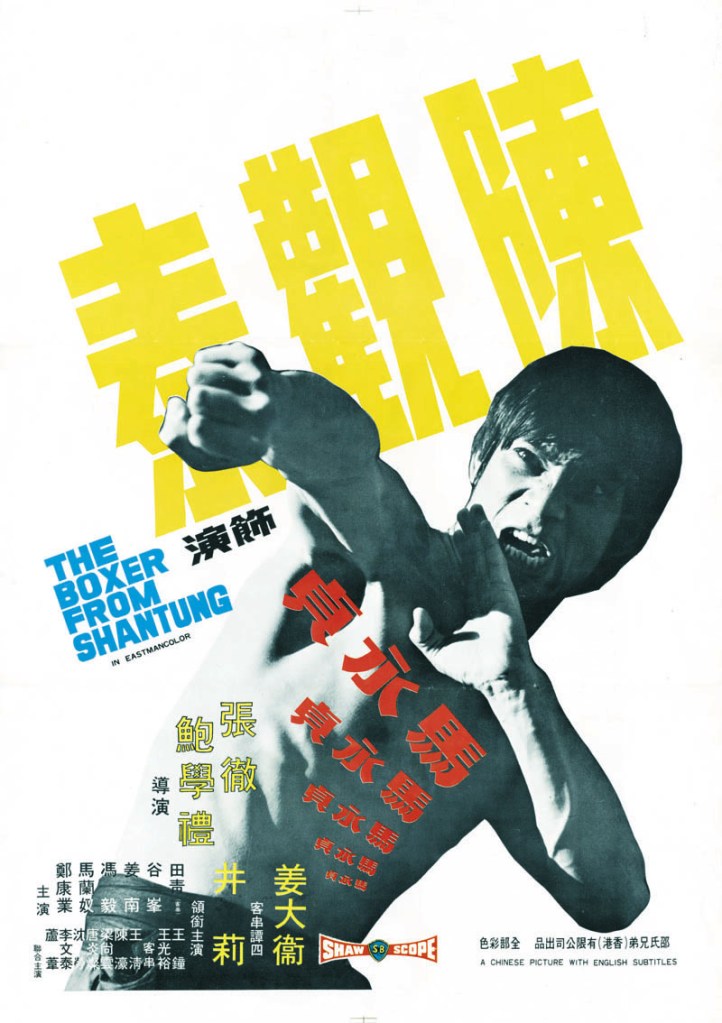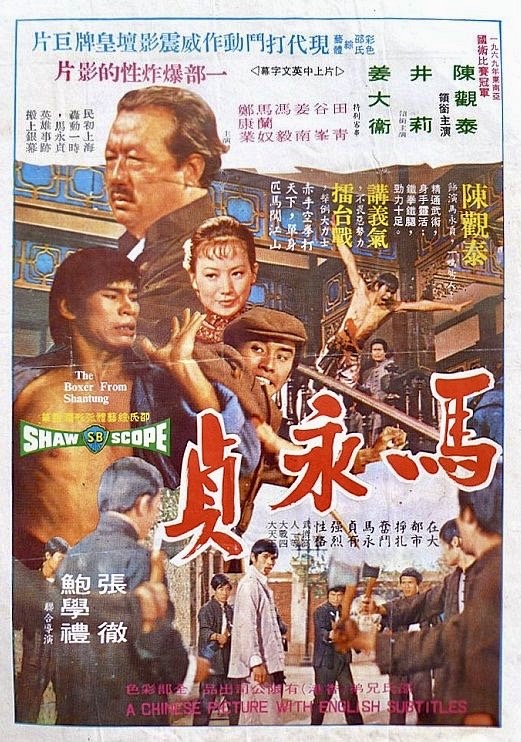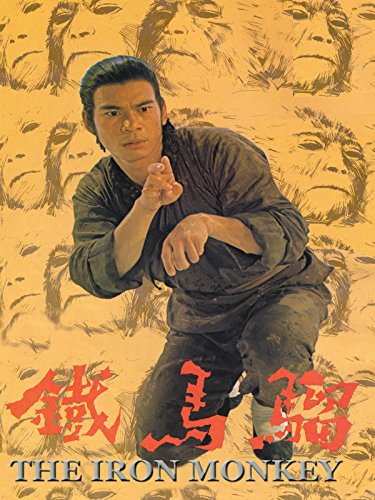Several years before the martial arts film craze erupted in the U.S. in the early seventies, Chinese action films classified as wuxia, a combination of sword fighting and martial arts in a period setting featuring noble anti-heroes, were already dominating the Hong Kong film industry. The masterminds behind this new trend were Runme and Runde Shaw, who had initially founded the Tianyi Film Company in Shanghai with their brother Runje in 1925. Once they opened their Hong Kong movie studio in 1958, the two Shaw Brothers begin to produce box-office hits like the 1962 historical drama The Magnificent Concubine. Then, the unexpected success of The One-Armed Swordsman in 1967 launched a new action genre for the studio and the floodgates were open. One of the best of these latter efforts is The Boxer from Shantung (1972), which was a major hit in China but is not as well known here. Starring martial arts expert Kuan Tai Chen, the film is a spectacular showcase for the charismatic athlete/performer and a wonderful introduction to martial arts movies produced by the Shaw Brothers.
The Boxer from Shantung is among twelve iconic titles from the Shaw Brothers’ peak achievements in the 1970s that have been lovingly packaged in an elaborate blu-ray box set from Arrow Films entitled Shaw Scope that includes a collectors’ book, 2 CDs of soundtrack music, dozens of bonus features and, of course, stunning high definition presentations of the film. Although the set kicks off with King Boxer (1972), which was released in the U.S. as Five Fingers of Death, I chose to begin with The Boxer from Shantung, a lavish epic running 134 minutes which charts the rise and fall of a country peasant after arriving in Shanghai to look for work.
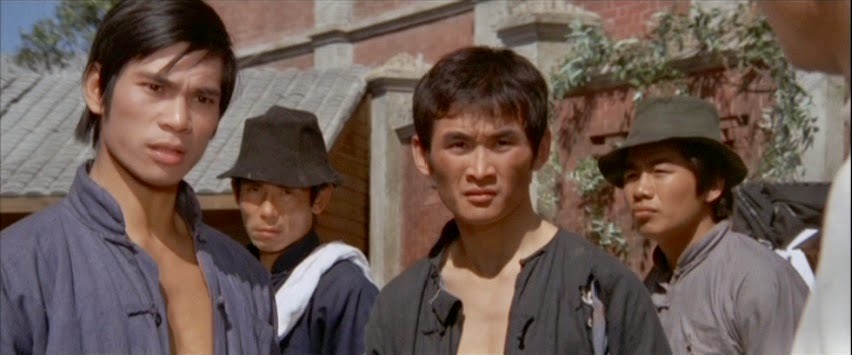
Some film reviewers have compared the story arc to various Warner Bros. crime dramas from the 1930s like The Public Enemy (1931) and The Roaring Twenties (1939) in which Jimmy Cagney plays ambitious punks who become ruthless crime lords. The difference here is that Ma Yung Chen (Kuan Tai Chen) is a commoner with integrity and a defender of the exploited. He might yield to temptation occasionally in the pleasures offered by Shanghai but his moral code remains untouched by the corruption and decadence of the city.
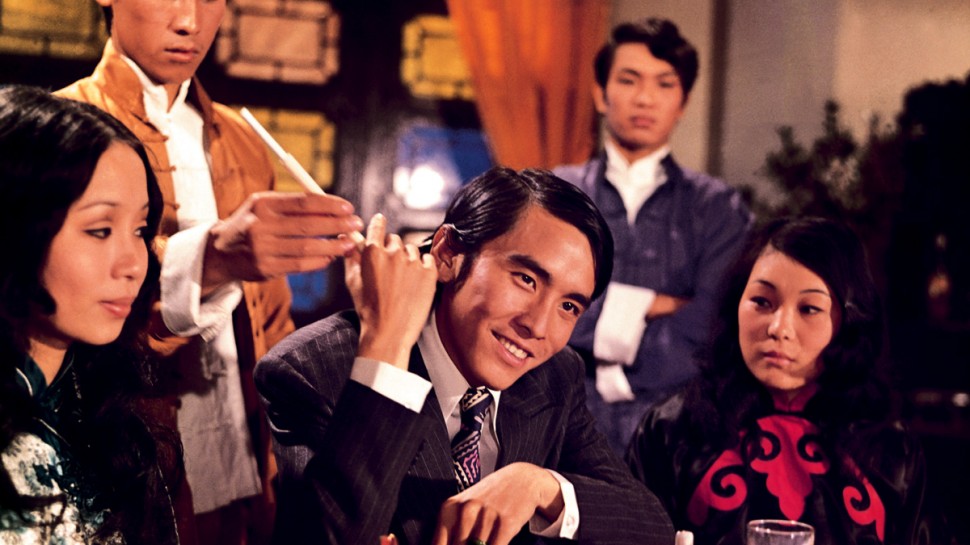
When he arrives in Shanghai with his country bumpkin friend Hsiao (Cheng Kang-Yeh), they struggle to find work and learn that the city is dominated by organized gangs in different neighborhoods. One chieftain is Tan Sze (David Chiang), a self-styled dandy and expert martial arts fighter who becomes a role model for Ma but remains elusive for most of the film. In time the two country boys find themselves bullied by Boss Yang (Chiang Nan) and his hatchet wielding gang members but Ma is not one to back down and The Boxer from Shantung chronicles his rise from a homeless nobody to a major player in the Shanghai underworld.
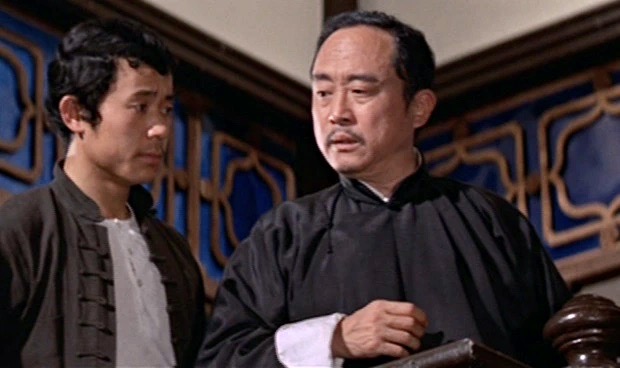
The major turning point occurs when he defeats a giant Russian boxer (Mario Milano, a popular Australian wrestler) in a pay-to-fight exhibition that earns him some decent money, a gang of his own and the admiration of Li Ching (Chin Ling-tzu), a singer in a tea salon. Threatened by Ma’s rise to power, Boss Yang sets traps to eliminate both Tan Sze and Ma but his wickedness does not go unpunished.
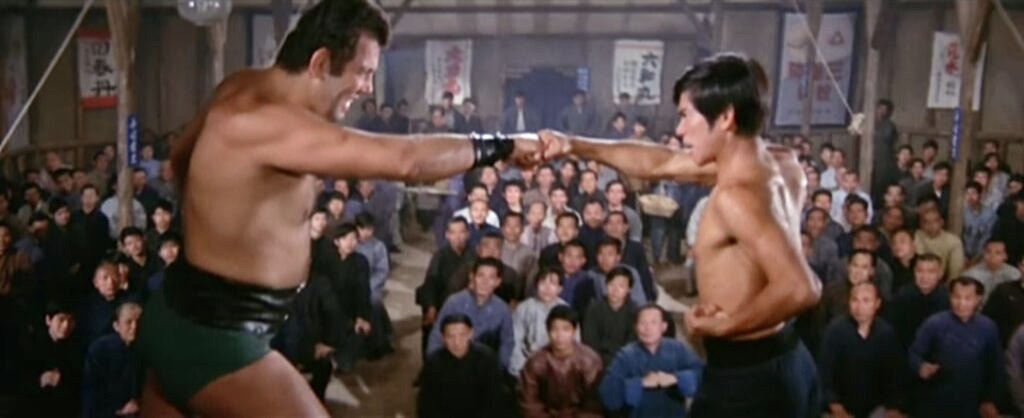
It might sound rather cliched and ordinary from the description but the film, which is co-directed by Chang Cheh and Pao Hsueh-Li, has enough twists and turns in a fast-paced narrative to make this oft-told tale of a David battling numerous Goliaths seem fresh again. Part of the movie’s effectiveness comes from wisely avoiding conventional plot developments that could have bogged The Boxer from Shantung down into needless exposition such as a potential love affair between Ma and Li. Instead, Li becomes an unattainable romantic fantasy for Ma who quickly disappears from the story but causes him to question his own values over his new role as a neighborhood boss.
The relationship between Ma and potential rival/friend Tan Sza also remains undeveloped yet provides the necessary inspiration for Ma’s self-improvement in both presentation and execution. Our protagonist even adopts some of Tan’s trademarks like adopting a devil-may-care demeanor under extreme duress or smoking from a fancy cigarette holder. [Spoiler alert]. In the role of Tan Sza, David Chiang is little more than a guest star but his charming, playful character provides a much more intriguing rival to Ma than the power-hungry Boss Yang and Tan’s dramatic death scene is one of the movie’s great action sequences.

Of course, it is the martial arts set pieces in The Boxer from Shantung that lift the film out of the ordinary into the extraordinary. Kuan Tai Chen is no less charismatic than Bruce Lee and he moves with the grace of a ballet dancer (the movie was choreographed by Liu Chia Liang, Tang Chia, Liu Chia Yung and Chang Cheh). The climatic final battle has Ma taking on Boss Yang’s army of warriors in an opulent restaurant after an axe has been buried in his stomach. He gets a second and a third wind, killing dozens of attackers, as he closes in on the big boss for a final kill.

Co-directors Chang and Pao use slow motion, rapid cutting, unusual camera angles and an assaultive audio mix of slaps, groans, cries and bones snapping to turn Ma’s fight scenes into a kinetic art form. It is also easy to suspend disbelief in the incredible odds against Ma because he is clearly performing his own stunts and his martial arts skills are formidable. Whenever he is threatened by his arch-rivals, he flashes a wicked, taunting smile in the manner of Charles Bronson. He is also matinee idol handsome not unlike Michael York if you can imagine an Asian version of that British actor.

Kuan Tai Chen was a specialist in Monkey Kung Fu, a martial arts style that, like its name, emulated the movements of monkeys and apes. He liked to change his persona from film to film and enjoyed playing villains occasionally as he demonstrated in the creepy but atmospheric Human Lanterns (1982) and Opium and the Kung Fu Master aka Lightning Fists of Shaolin (1984), an offbeat blend of drama and action comedy. In an interview for Hong Kong Cinemagic, Tai Chen said, “Back in the times, every movie had to take 60 working days to shoot. We did this one [The Boxer from Shantung] in a month, with day and night shooting with two directors. Pao Hsueh-Li shot during the day and Chang Cheh shot during the night. The ending along took 10 days.”
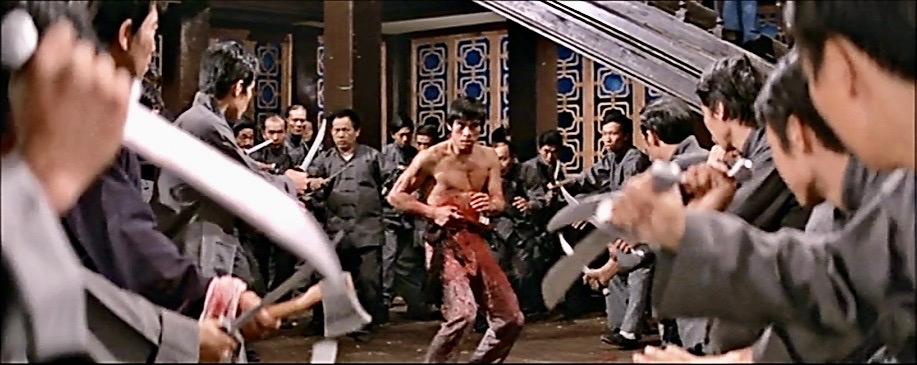
The Boxer from Shantung is generally considered the movie that launched Kuan Tai Chen’s career and he quickly became a major star for the Shaw Brothers. Among his biggest hits for the studio are Challenge of the Masters (1976) and Executioners from Shaolin (1977), both of which are featured in the Shaw Scope Blu-ray collection from Arrow Films and were directed by Chia-Liang Liu, one of the most renowned and successful directors in the Hong Kong film industry.
Tai Chen would later branch out into directing with efforts such as Iron Monkey (1977) plus he has continued working as an actor up through 2018. He plays a supporting role in Once Upon a Time in Shanghai (2014),a remake of The Boxer from Shantung, and is also featured in The Man with the Iron Fists (2012), the directorial debut of RZA, New York rapper and co-founder of the Wu-Tang Clan.
Director Chang Cheh, who is often referred to as the “Godfather of Hong Kong action cinema,” directed over 90 films during his 43 year career. His breakthrough film was The One-Armed Swordsman in 1967 and he is credited with launching the film careers of several martial arts trained actors like David Chiang and Ti Lung who co-starred in popular action dramas like Vengeance (1970) and Dynasty of Blood (1973). The fight choreography of his movies is justly famous and some of the more spectacular examples include Five Shaolin Masters (1974), Crippled Avengers (1978) and The Five Venoms (1978). The latter three are featured in the Shaw Scope Blu-ray collection from Arrow Films.

Other links of interest:
http://www.hkcinemagic.com/en/page.asp?aid=223&page=1
http://kungfumovieguide.com/profile-chang-cheh/

